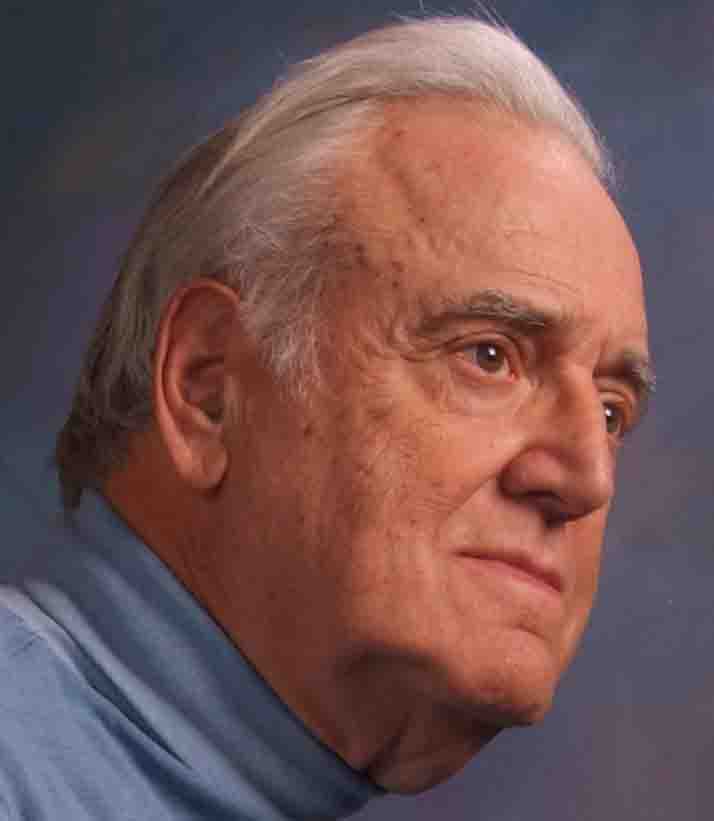The simple and straightforward solution: If we don't have an enemy, then we will invent one. Thus Saddam Hussein, Iran's Mahmoud Ahmadinejad, and now, in the minds of many American journalists and politicians, Vladimir Putin.
This "solution" extends back to the administration of Harry Truman. When Truman's advisers urged the President to strengthen the military in the face of threatened communist expansion to Greece and Italy, Truman replied that the American people would not tolerate a revived military so close to the end of World War II. Republican Senator Arthur Vandenburg replied, "the we will have to scare the hell out of the American People."
I submit, along with most Americans, that during the Truman and subsequent administrations, the Soviet threat was genuine, and that a policy of "containment" was justified. Incidentally, the author of that "containment policy" was George F. Kennan who, as noted above, strongly condemned the eastward expansion of NATO.
Clearly, that deliberate "scaring" of the American public has now become a national and a global menace. Truman's successor, Dwight Eisenhower, warned of the menace as he left office in 1961: "In the councils of government, we must guard against the acquisition of unwarranted influence, whether sought or unsought, by the military-industrial complex. The potential for the disastrous rise of misplaced power exists and will persist." Tragically, that advice was not heeded. And so today, almost half of all military spending throughout the world is by the United States, while much of the remaining half is by US allies.
Be assured that no Americans, including the "military-industrial complex," want a "hot" war. All sane individuals realize that such a war would bring total devastation throughout the world. But that "military-industrial-complex" is quite in favor of nurturing a threat of war -- a "cold war" -- as a justification for their existence and prosperity.
And that "enemy" must be a credible opponent. If our presumed "enemy" is Al Qaeda, then we are building multi-billion dollar aircraft carriers and nuclear submarines to fight an "enemy" without a navy, and billion-dollar aircraft to fight an "enemy" without an air force. Absurd! And an increasing number of ordinary Americans recognize this absurdity. Enter, conveniently, Vladimir Putin and the Russians.
It is impossible to overstate the institutional and economic momentum behind the urge to resume the Cold War. There are, by design, military contractors in every congressional district in the United States. Enormous fortunes and millions of American jobs require national defense "business as usual." And so Congress appropriates funds for weapons systems that the military insists they don't want or need. Arms reduction is simply not on the Congressional agenda.
The implication? "We can't afford peace, it would ruin the economy." This is widely believed by politicians, economists, and the media. And it is false. The total American demobilization after World War II, with millions of soldiers and sailors returning to civilian life, was followed by unprecedented prosperity.
Moreover, there is an urgent need to apply military technology to common global emergencies, most notably the need for renewable energy and the mitigation of climate change. This is a crisis that calls for the cooperative endeavors of Americans, Russians, and industrial countries throughout the world.
If the America economy needs an "enemy," the energy and climate crises qualify. With these realization, we can together "beat swords into plowshares."
5. The United States is an "exceptional" and "indispensable" nation. Every American president, including the current president, proclaims that the United States is an "exceptional" nation. Throughout the land we hear, "American is the greatest nation on earth," or even, "the greatest nation in history." No one who says anything less is deemed qualified for public office.
I am not one of those Americans, though I nonetheless consider myself a patriot. Perhaps the United States was, at one time, "the greatest nation" -- arguably in the decade following the great World War. But no longer. As a patriot, endorsing and celebrating the enduring moral and political ideals of the founding documents of our republic, I believe that it is my duty as a citizen to protect, indeed to restore those ideals. They have, in recently years, been seriously violated by our government without noteworthy protest by my fellow citizens.
But "the greatest nation?" By almost any objective standard of national excellence -- health, infant mortality, life expectancy, crime, wealth inequality, education, even personal and civil liberty -- the United States is not in the lead, and its standing has, in recent years, been declining.
We should not be surprised to discover that very few individuals outside of the United States agree that the US is "the greatest nation on earth."
Nonetheless, these days American politicians, diplomats, journalists and corporate "think-tank" officials, roam the world preaching "The American Way" -- a dogma of unregulated "free" markets and limited government. I daresay that you saw an abundance of this kind of activity in Russia in the years following the fall of the Soviet Union.
"The American Way," these unofficial emissaries are convinced, is what is best for any developed or developing nation around the world, regardless of whether the people of that nation feel otherwise. After all, these preachers say, "we represent 'the greatest nation on earth.' And we will share our wisdom and our 'way,' even if we must do so by force of arms."
Next Page 1 | 2 | 3 | 4 | 5 | 6 | 7 | 8
(Note: You can view every article as one long page if you sign up as an Advocate Member, or higher).





